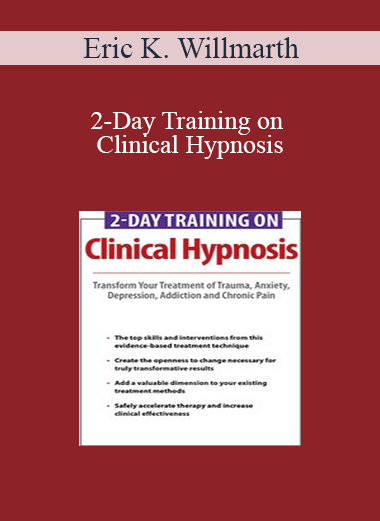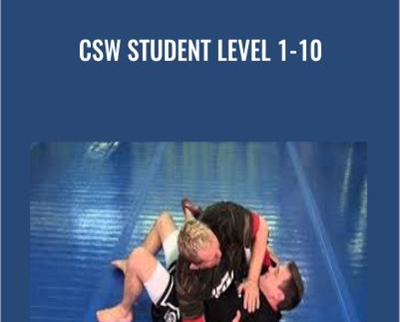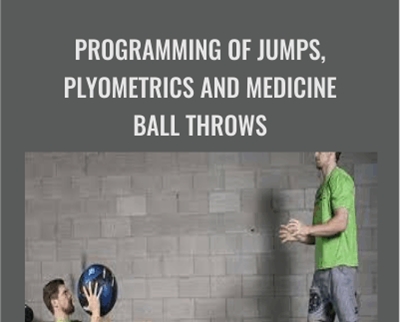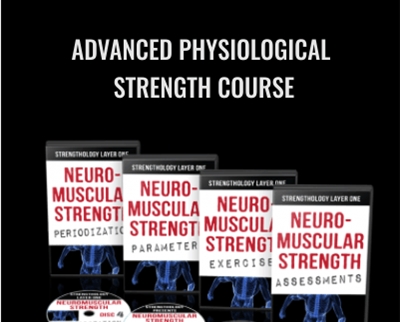Description
Unlock your potential with Timothy Spruill – Disarming the Suicidal Mind: Evidence-Based Assessment and Intervention, a premium course from renowned authors and industry leaders. Gain expert insights, actionable strategies, and practical tools to advance your skills and achieve success.
Join thousands of learners who trust WSOBox for the best online learning experience. Explore courses from top instructors such as Taylor Welch, Jim Camp, Marisa Peer, Scott Sonnon, and many more.
[Instant Download] – Immediately deliver the download link after receiving the payment
Purchase Timothy Spruill – Disarming the Suicidal Mind: Evidence-Based Assessment and Intervention courses at here with PRICE $219.99 $41
- Faculty:
- Timothy Spruill
- Duration:
- 6 Hours 21 Minutes
- Format:
- Audio and Video
- Copyright:
- Aug 27, 2018
Description
Outline
INTRODUCTION TO THE GROWING PROBLEM OF SUICIDE IN AMERICA
- Need for concern: statistics revealing the increasing trend in suicidal ideation, attempts, deaths
- National data
- State-specific data
- Career risks for the professional counselor
- Factors contributing to the failure of adequate assessment and triage
- Inadequate training of physicians and professional counselors
- Inadequate funding for mental health (despite numerous parity laws)
- Shifting of the burden of assessment to emergency rooms
- Poorly trained law enforcement officers initiating involuntary admissions
EPIDEMIOLOGY — CONTRIBUTING FACTORS
- Risk factors
- Demographic risk factors (age, gender, ethnicity, etc.)
- Environmental risk factors (adverse childhood experiences)
- Addictions
- Mental illness
- Economic risk factors (employment)
- Warning signs
- Feeling alone—isolated from family/friends
- Feeling like a “burden” to others
- Little or no fear of death
- Red herrings
- Suicide notes
- Contingent suicide threats
- Cutting
- Pending divorce
- Limitations of the research and potential risks
ASSESSMENTS/MEASURES TO AID IN DETERMINING RISK LEVEL — A COMPREHENSIVE STRATEGY
- Mental status exam
- Collateral information
- Adults
- Relative lethality of plans/attempt (Risk/Rescue Scale)
- Hopelessness (Beck Hopelessness Inventory)
- Reasons for living (Brief Reasons for Living Scale)
- Adverse childhood experiences (A.C.E. Questionnaire)
- Teens and children
- Predictive/protective factors identified in the research
- Special populations
- Veterans
- LGBT
- Promising, novel methods for assessing risk
- Implicit cognitions—measuring implicit associations with death and suicide
COMMON INTERVENTIONS, MISTAKES, THINKING ERRORS & ETHICAL ISSUES
- Our natural tendencies to err
- Feelings of “rightness” are not reliable indicators
- External factors contributing to errors
- Internal factors contributing to errors
- Self-care is critical
- Two types of thinking (fast and slow)
- Dangers of lazy, “fast” associative thinking
- Substitution of easy-to-answer question for more difficult and complex question
- Type 1 vs. Type 2 errors (legal liability and ethical issues)
- Patient autonomy and self-determination
- Confidentiality limits
INTERVENTIONS AND TREATMENT PLANNING
- Non-judgmental, empathic listening
- Acknowledging reason for concern
- Taking advantage of ambivalence
- Evidence-based interventions to reduce subsequent suicide attempts
- DSM-5® new definitions and terminology
- Assess suicidal ideation at the start of every visit
- DSM-5 level one screening questionnaire
- Suicidal Behavior Disorder
- Non-Suicidal Self-injury
CHALLENGES TO ACHIEVING SUCCESSFUL TREATMENT OUTCOMES
- Means restriction
- Social support — supervision
- Follow-up counseling
- Exploring alternative responses should suicidal thoughts increase in frequency/intensity
WHEN LOSING A PATIENT TO SUICIDE — REMAINING RESILIENT AND MOVING FORWARD
Faculty
Timothy Spruill, MA, EdD Related seminars and products: 1
Timothy Spruill, MA, EdD, has conducted more than 3,500 emergency psychiatric assessments in one of Orlando’s busiest emergency departments as a consultant at Advent Health, where he is a founding faculty member of the emergency medicine residency program. Through his work with high-risk patients and his research in the area of suicidology, Dr. Spruill has developed an evidence-based approach to emergency mental health that urges progress far beyond the fragile gains of traditional (and contemporary) psychological triage.
His extensive experience conducting assessments and evaluations reaches back to his work in private psychiatric hospitals in the early 1980s. Dr. Spruill earned his Master’s degree in counseling psychology from George Mason University in 1977. After four years of teaching, he left for the applied world of a community psychiatric setting and pursued his Doctorate in counseling psychology at Western Michigan University. In addition to his ongoing consulting work, he returned to academia in 1991 to share his experience and extend his research capabilities. During his time with Andrews University and, subsequently, Advent Health, he has continued to collect data on suicide and conduct research in his chosen field of behavioral medicine. Since 2010, he has taught continuing education courses on the topics of suicide assessment, preventing medical errors, and violence. He has also presented his findings at numerous conferences, traveling as far as Cape Town, South Africa, to speak on suicide.
Speaker Disclosures:
Financial: Timothy Spruill is assistant director of Behavioral Medicine, Family Medicine and Emergency Medicine at Florida Hospital. He receives a speaking honorarium from PESI, Inc.
Non-financial: Timothy Spruill has no relevant non-financial relationships to disclose.
Purchase Timothy Spruill – Disarming the Suicidal Mind: Evidence-Based Assessment and Intervention courses at here with PRICE $219.99 $41
Why Choose WSOBox for "Timothy Spruill – Disarming the Suicidal Mind: Evidence-Based Assessment and Intervention"?
At WSOBox, we provide a comprehensive collection of over 70,000 online courses from world-renowned authors and industry leaders. The "Timothy Spruill – Disarming the Suicidal Mind: Evidence-Based Assessment and Intervention" course is one of our premium offerings, carefully curated to help you excel in your personal and professional journey.
Learn from Top Authors and Industry Experts:
- Taylor Welch - Business and Marketing Expert
- Jim Camp - World-Class Negotiation Coach
- Marisa Peer - Leading Therapist and Hypnotherapist
- Scott Sonnon - TACFIT Founder and Fitness Expert
- Dan Kennedy, Brian Tracy, Grant Cardone, Tony Robbins, and more...
What Makes eSoundr Unique?
- ✔️ Access to exclusive, hard-to-find courses from famous authors.
- ✔️ Secure, seamless payment process with instant access to your course.
- ✔️ Downloadable content available for offline learning.
- ✔️ Lifetime access to all purchased courses.
About the "Timothy Spruill – Disarming the Suicidal Mind: Evidence-Based Assessment and Intervention" Course:
The "Timothy Spruill – Disarming the Suicidal Mind: Evidence-Based Assessment and Intervention" course offers step-by-step instructions, practical tools, and proven strategies to help you succeed. Learn at your own pace, anytime and anywhere, with lifetime access to the course materials.
How Will I Receive My Course?
After your successful payment, you’ll receive a direct download link to access the "Timothy Spruill – Disarming the Suicidal Mind: Evidence-Based Assessment and Intervention" course. You can also access it anytime through your WSOBox account.
Need Assistance? How Will I Receive My Course?
If you have any questions, feel free to contact us. Our support team is always ready to assist you in making the most out of your learning experience.
Popular Course Categories at WSOBox?
- 💻 Business & Marketing
- 🎤 Self-Development & Coaching
- 🧠 Hypnotherapy & NLP
- 💪 Health & Fitness
- 🎨 Creative Arts & Design
- 💡 Mindset & Personal Growth
Don’t miss the opportunity to enhance your skills with the best courses at WSOBox. Join our community of lifelong learners and start your journey toward success today!









